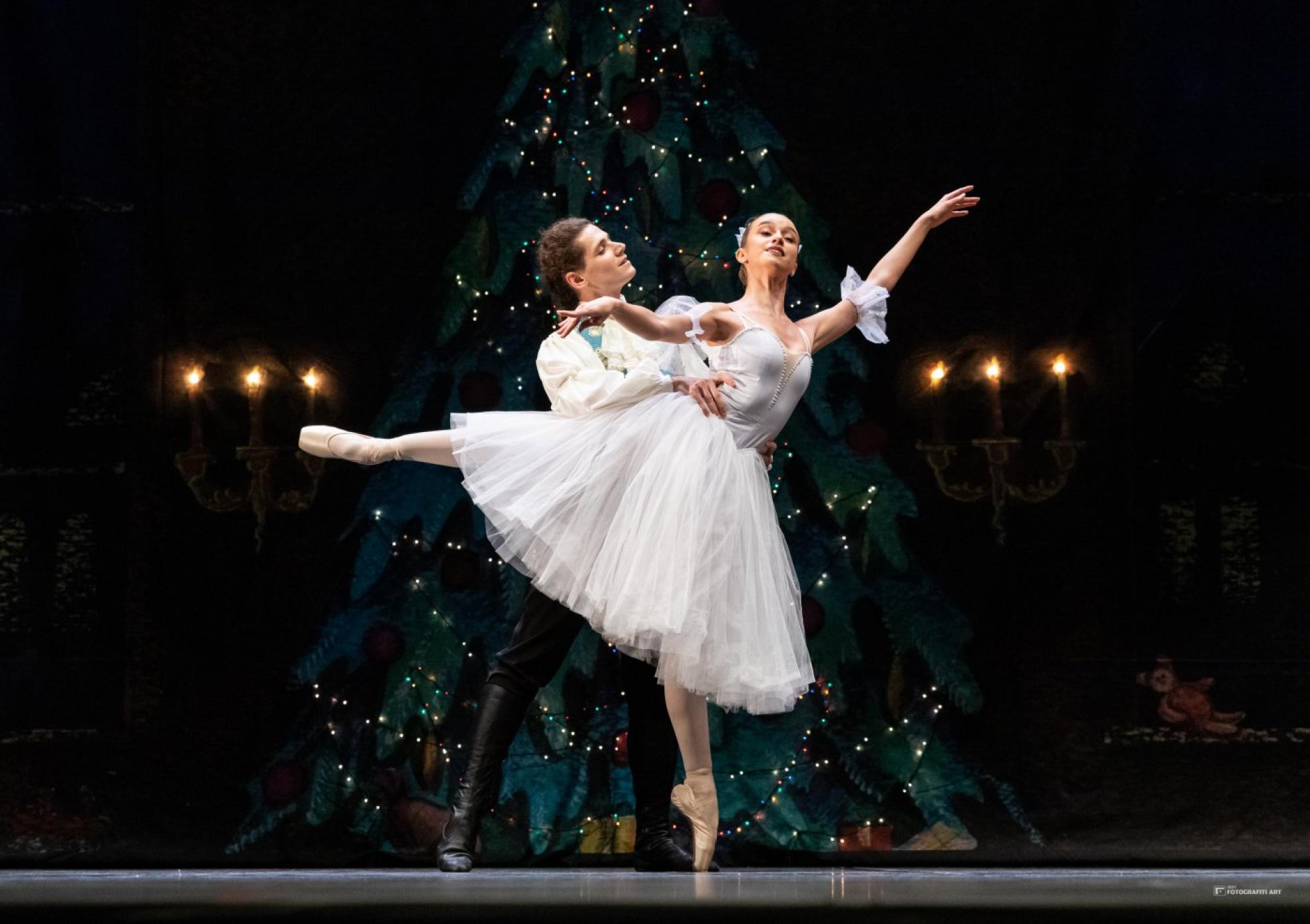
Tchaikovsky's The Nutcracker on the Costa
Ballet. ·
For the last five years, Estepona has hosted the School of Russian Ballet's performance of the classic two-act ballet, mainly danced by the studentsSections
Highlight

Ballet. ·
For the last five years, Estepona has hosted the School of Russian Ballet's performance of the classic two-act ballet, mainly danced by the studentsSHAY CONAGHAN
Friday, 2 December 2022, 11:59
Christmas is the time of year when families get together and spend time with each other. They'll open presents, eat the usual festive food and generally have a good time.
Others Sgo out their way to entertain themselves at the cinema or pantomime. The ballet is also a good alternative, although it's not always everyone's cup of tea.
However, that hasn't stopped the School of Russian Ballet from putting on an annual performance of one of the most famous Christmas ballets: Tchaikovsky's The Nutcracker.
The school has been performing the ballet in the Costa del Sol area for the last seven years. The first two were done in Marbella, but a decision was made five years ago to switch it to Estepona, where it has been ever since.
The commitment to move it was an easy one. "The choice of town largely depends on the availability of the theatre," said Regina Zarhina, director and founder of the School of Russian Ballet. "Estepona has the best theatre on the coast, in terms of the size and the convenience."
The size of the theatre for such a big production is important for the school. "We have approximately 50 people in this show," Zarhina said. "There are only a few adult non-dancers to play the parents in the party scene, a couple from Romania to dance the main pas de deux, another professional dancer to play Drosselmeyer and two of our graduates who are returning," she explained.
When 15 December, 5.30pm
Where Teatro Auditorio Felipe VI (Estepona)
The school also fully trusts their students to put into practice what they take away from their lessons. "We learn so we can dance and not hold back. Stage practice, as we call it, is a major part of ballet education," Zarhina said.
The School of Russian ballet is also unique in its multinationality, with students from all over the world and between the ages of three to 19. It's the perfect representation of all the people living on the Costa del Sol.
"The school now boasts students of at least 12 nationalities," Zarhina said. "Children often help each other by translating from different languages in case something gets lost in translation; it creates a wonderful atmosphere," she explained.
However, despite not all coming from the same places, nor speaking the same language, the school's fundamental message still gets through to everyone. "People are different, but they all share love for their children and desire to provide them with education and opportunities," Zarhina explained.
The school has also taken up the chance to be a safe place for children who have been displaced because of the war in Ukraine, something that they are more than happy to do. "To some of them, it's a refuge from the foreign languages they are faced with at school; to others, a chance to continue their training and a return to normality," Zarhina said.
Ballet shows involve a lot of work, not only by the students themselves, but the team working behind the scenes. "We do 2 shows per year, one in December and one in June," the director explained. "The summer show is more of a showcase for our students and not a full-length ballet." Big, full-length productions, when done right, can also be costly. "We do excerpts from classical ballets, but putting on a full show on the scale we find acceptable is very expensive," Zarhina said. "I think ballet needs to be done at the highest level available, so we do what we can."
The School of Russian Ballet opened its door on the Costa del Sol in September 2013. Anyone and everyone who wants to dance can do just that, as the school is privately run. "Many ballet schools in the world are highly selective, because ballet is so demanding on the body," Zarhina pointed out. "But we do not discriminate. I strongly believe that everyone deserves an opportunity to learn ballet," she said, explaining how it's a wonderful art form that is both challenging and artistically rewarding. "Ballet training is beneficial, no matter whether you want to become a professional or not," said Zarhina. "It teaches discipline, camaraderie, artistry, being a part of a group, and so much more."
Zarhina herself is a ballet dancer, though she never reached the heights she wants her students to. "I was trained in Russia but spent the majority of my life in the USA," she said. "I danced a little, but mostly taught."While she was head of the ballet department at the University of Utah, she visited Marbella and saw the chance to open a school on the Costa del Sol, as she was also looking for a change in her life and decided to take that leap of faith, a notion that she now passes down to her ballet students.
Noticia Patrocinada
Publicidad
Rocío Mendoza | Madrid y Lidia Carvajal
Encarni Hinojosa | Málaga
Esta funcionalidad es exclusiva para registrados.
Reporta un error en esta noticia

Debido a un error no hemos podido dar de alta tu suscripción.
Por favor, ponte en contacto con Atención al Cliente.

¡Bienvenido a SURINENGLISH!

Tu suscripción con Google se ha realizado correctamente, pero ya tenías otra suscripción activa en SURINENGLISH.
Déjanos tus datos y nos pondremos en contacto contigo para analizar tu caso

¡Tu suscripción con Google se ha realizado correctamente!
La compra se ha asociado al siguiente email
Comentar es una ventaja exclusiva para registrados
¿Ya eres registrado?
Inicia sesiónNecesitas ser suscriptor para poder votar.